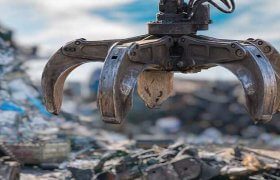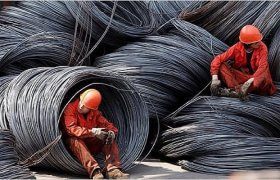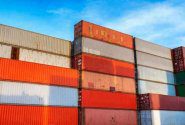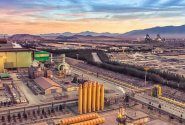News sources told Metalab Levaten that Chinese steelmakers have increasingly changed the feed of their factories to adapt to current changing conditions. The Chinese decided to use low-grade iron ore in the feed of their factories. The reason for this change of procedure is that the Chinese government has not entered this sector and the market is not in the hands of the government. Of course, this is a temporary issue. But in the current situation, it has worked and steelmakers have entered this market imperceptibly. Excessive consumption of iron ore in China has prompted the government to impose tax penalties on some high-consumption industries. In the following, we will evaluate this issue in more detail. Please be with Artan Press.
*** Chinese factories use low-grade iron ore
Official demand from the Chinese market told Metal Bulletin that in the third quarter of 2020, when low inventory levels for medium-fines in Chinese ports led to higher prices for iron ore, demand for steel increased in the months September and August went up. Given the similarity of the 2021 scenario with 2020, this situation has been felt again. Market participants have decided to use low-grade iron ore in their factories’ feed to circumvent government fines. Just like last year, recent restrictions on steel profit margins have led Chinese factories to use lower-grade iron ore to save costs, sources told Fast Market.
*** Reflection of the use of low-grade iron ore
The impact of this news on prices is not noticeable. According to sales hubs in China, rebar fell to an average of 434.29 yuan per tonne in May, down 376.77 yuan ($ 58) per tonne in May. This is mostly due to China’s pressure on steel prices. Therefore, changing the feed of factories and the use of low-grade iron ore had no effect on steel prices. Fastmarkets data show that this figure has decreased by 46.5% compared to April. Profit margins for hot-rolled coil manufacturers were 26.1 percent in May, averaging 9 yuan per tonne since April. The decrease in marginal proxies was further due to the increase in crude metal production costs, which increased by an average of $ 66.34 per ton to $ 524.40 per ton.
However, steel prices rose on average last year. But after the Chinese prime minister warned of high commodity prices and promised more government action to lower domestic prices, rising market demand caused prices to fall spontaneously. “A careful review of commodity prices by the Chinese government since May has greatly slowed market growth and limited steel price increases,” said a buyer source in southern China.
*** The Chinese government is determined to reduce steel prices
On May 26. For the third time in 14 days, rising commodity prices have been raised as a major challenge during the weekly executive session of the Chinese State Council. This shows the Chinese government’s determination to reduce steel prices. The China Iron and Steel Association has also called on steel industry activists to resist destructive competition and volatile prices that are disrupting the steel market. “Previously, with high demand for steel before the rainy season and with government mediation to reduce crude steel production, steel prices were rising rapidly and factory profit margins were greatly increased,” said a source in southern China. But in the current situation, the market has not behaved like in previous years.
These strong profit margins in recent years have allowed steel mills, which were not under any restrictions, to maintain high levels of production and easily pay fines for the use of high-grade iron ore. But the government’s weakening profit margins have led to restrictions on the consumption of high-grade iron ore and medium-level fines. This is relatively costly in the current context and will not benefit the producer. As a result, companies are turning to low-grade iron ore.
*** Tax penalties in Chinese ports have increased the desire of steelmakers to consume low-grade iron ore
News sources told Fastmarkets that in addition to weakening factory profit margins, the possibility of moderate fines in Chinese ports has also increased the desire of steelmakers to consume low-grade iron ore. The government has been strict on environmental issues, and this has been unprecedented on the part of the Chinese government. A buyer source in northern China recently announced that the stock of medium-level fines in Chinese ports has been declining since March, helping to boost the price of first-class fines in the coming months. This type of tax offense targets the top Chinese steel commodity brands.
*** High volume of crimes due to the use of iron ore in Chinese factories
A commercial source in Shanghai said that medium-level fines have recently led to faster price increases compared to high-level fines due to the increased supply of combined fines. In other words, the increase in the average fine threshold has generated more revenue for the Chinese government than high-level fines. This shows the high volume of crimes of using iron ore in Chinese factories and the government’s intelligence aristocracy to consume them.
It seems that the government has no plans to import iron ore in the country. The import of any type of iron ore into China is suppressed by heavy tax penalties. This situation occurs in a situation where prices are in the form of Orders have been suppressed in China. Steelmakers are having a hard time. It remains to be seen how long the Chinese government intends to control the steel market.
این مطلب بدون برچسب می باشد.












ثبت دیدگاه